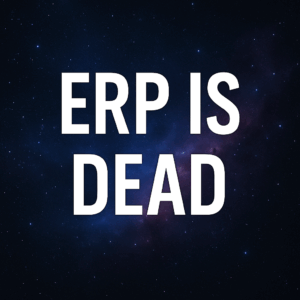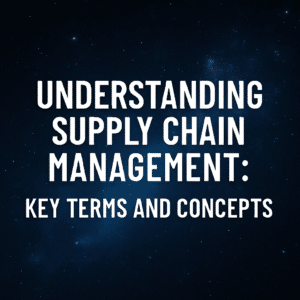In the fast-paced and complex world of modern business, Enterprise Resource Planning (ERP) systems have emerged as critical tools for managing and integrating various functions across an organization. These sophisticated systems enable businesses to consolidate vital processes such as finance, HR, manufacturing, supply chain management, and more into a single, unified framework. This integration not only streamlines operations but also provides invaluable insights and enhanced data accuracy, leading to better decision-making and improved overall efficiency.
The importance of ERP systems in today’s business environment cannot be overstated. In an era where real-time data and seamless process integration are not just advantageous but essential, ERPs stand at the forefront of technological solutions that drive business success. They help organizations adapt to the rapidly changing market demands, maintain competitiveness, and foster growth by offering scalable and flexible solutions tailored to specific business needs.
However, the implementation of an ERP system is not without its challenges. It often involves significant changes in organizational processes and can be resource-intensive. Common hurdles include managing budget constraints, ensuring data integrity during migration, adapting to organizational change, and aligning the ERP system with business objectives. This article aims to delve into these challenges, offering insights and practical strategies for overcoming them. By understanding these common issues and how to effectively address them, businesses can ensure a smoother and more successful ERP implementation, setting the stage for long-term operational excellence and sustainability.
Table of Contents
ToggleSubsection 1.1: Lack of Clear Objectives
The cornerstone of any successful ERP (Enterprise Resource Planning) implementation is the establishment of clear, achievable goals. These objectives not only guide the course of the implementation but also anchor it firmly in the business’s broader strategic vision. Without well-defined targets, the project risks drifting aimlessly, potentially resulting in an ERP system that fails to meet the specific needs of the business. The importance of setting these goals lies in their ability to offer a focused direction for the entire process, ensuring that every step taken is a stride toward a well-envisaged endpoint. This clarity aids in the optimal allocation of resources, preventing wastage and ensuring critical areas of the implementation are given due attention.
Moreover, having measurable goals allows for an assessment of the project’s success post-implementation, fostering an environment of continuous improvement and adaptation. To align the ERP implementation with business objectives, it is crucial to involve stakeholders from various departments, conduct regular reviews of the goals, and ensure these objectives are consistently aligned with the evolving needs and strategies of the business.
Subsection 1.2: Budget Overruns
Budget overruns are a prevalent and often daunting challenge in ERP implementations. These overruns can stem from a variety of sources such as unexpected technical difficulties, expansions in the project’s scope, or an initial underestimation of the required resources. Often, organizations underestimate the complexity involved in migrating to a new ERP system, leading to insufficient budget allocations.
This underestimation can result in cost escalations as unanticipated challenges arise during implementation. Scope creep, where additional features or functionalities are added to the project beyond the initial plan, can also inflate costs significantly. To manage and control these implementation costs, organizations must practice rigorous planning and budgeting, setting realistic cost expectations from the outset.
It’s also crucial to establish strong project governance to monitor progress and expenditures, ensuring that the project stays within its financial confines. Regular financial reviews and the willingness to make tough decisions to curtail scope creep are vital in keeping the project on budget.
Subsection 1.3: Resistance to Change
Resistance to change is a natural human response, especially in organizational settings where ERP implementations can signify major shifts in work processes and routines. This resistance can manifest as skepticism, apprehension, or outright opposition to the new system, often stemming from a fear of the unknown or a sense of comfort with existing processes. To foster a positive attitude towards change, it’s essential to engage with employees at all levels, communicating the benefits and rationale behind the new ERP system.
Involving users in the planning and implementation process can create a sense of ownership and alleviate fears associated with the change. Training and support are also crucial in ensuring that employees feel competent and confident in using the new system. By addressing concerns, providing adequate training, and demonstrating the tangible benefits of the new system, organizations can turn resistance into acceptance and even enthusiasm for the new ERP system. For more information on how you can best address resistance to change, check out our podcast episode titled – Breaking Barriers: Understanding and Overcoming Resistance to Change.

Section 2: Strategic Planning and Project Management
Subsection 2.1: Effective Project Planning
A robust ERP project plan stands as the foundation of a successful implementation. This plan outlines the path the project will take, detailing the steps necessary to achieve the desired transformation. The essence of effective project planning lies in its ability to foresee challenges, allocate resources judiciously, and set achievable targets. Central to this is the establishment of realistic timelines and milestones.
These timelines serve as checkpoints that not only track progress but also help in maintaining momentum throughout the project’s lifecycle. Realistic milestones are crucial because they offer tangible goals and deadlines that keep the team focused and motivated. Furthermore, they enable early detection of potential delays or issues, allowing for timely interventions. A well-constructed project plan also includes contingency measures to handle unexpected developments, ensuring that the project remains on track despite unforeseen hurdles.

Subsection 2.2: Choosing the Right ERP Solution
Selecting the right ERP solution is a pivotal decision that can significantly impact the success of the implementation. The criteria for this selection should be firmly rooted in the unique needs and goals of the business. An ideal ERP system is one that not only addresses current requirements but is also scalable to accommodate future growth and changes in business processes.
Customization plays a vital role in this context. The chosen ERP should offer the flexibility to be tailored to the specific workflows and practices of the organization. However, it’s important to balance customization with standardization to avoid overly complex systems that are difficult to maintain and upgrade. The selected ERP solution should align with the industry standards and practices of the business, ensuring that it enhances, rather than hinders, operational efficiency.

Subsection 2.3: Strong Project Leadership
The role of leadership in ERP implementation cannot be overstated. Strong, effective leadership is the driving force behind the success of such projects. Effective ERP project leaders are those who possess not only a deep understanding of the technical aspects of the system but also a clear vision of how the ERP will benefit the organization. They are skilled communicators, capable of articulating the project’s goals and its importance to all stakeholders, thus fostering a shared commitment to success.
These leaders are also adept at decision-making, able to navigate the complexities and challenges of the implementation process with foresight and confidence. Another key characteristic of effective project leaders is their ability to inspire and motivate their teams, cultivating a positive and collaborative work environment. This is crucial in maintaining high levels of productivity and morale throughout the often challenging journey of ERP implementation. In essence, strong leadership is the catalyst that propels the project forward, ensuring it stays aligned with the strategic objectives and delivers the intended outcomes.
Section 3: Technical Considerations and Support
Subsection 3.1: Data Migration and Integrity
Data migration and integrity are pivotal aspects of any ERP implementation. The process of transferring data from legacy systems to the new ERP platform is fraught with challenges, including the risk of data loss, corruption, or inconsistencies. Ensuring data integrity involves meticulous planning and execution. It requires thorough data cleaning, where redundant, obsolete, or inaccurate data is identified and rectified or removed.
This cleaning process is critical to ensure that the new system is not compromised by poor-quality data. Additionally, the validation of data is a vital step, verifying that the data transferred to the new system accurately reflects the source data. This process often requires specialized tools and expertise to ensure that no critical information is lost or misrepresented during the migration. The focus on data integrity is not only about preserving information but also about laying a foundation for accurate and reliable reporting and decision-making in the new ERP environment.
Subsection 3.2: System Testing and User Training
The necessity of rigorous system testing in ERP implementations cannot be understated. This phase is critical to identify and rectify any issues before the system goes live. Effective testing should cover all aspects of the ERP system, including individual modules and the system as a whole, to ensure that it functions as expected in various scenarios. Testing should mimic real-world operating conditions as closely as possible to uncover any potential issues that could disrupt business processes.
Parallel to system testing is the need for effective training and user support. Training ensures that the users of the ERP system are comfortable and proficient with its functionalities. This training should be tailored to the different user groups within the organization, considering their specific interactions with the system. Furthermore, ongoing support is crucial to help users navigate any challenges they face post-implementation, ensuring the continuous and effective use of the ERP system.
Subsection 3.3: Post-Implementation Support and Upgrades
The journey of an ERP system does not end with its implementation. Post-implementation support is crucial to maintain the health and efficiency of the system. This includes regular monitoring for issues, providing timely user support, and conducting periodic reviews to ensure the system continues to meet the evolving needs of the business.
Planning for future upgrades and changes is also a key component of maintaining an ERP system. Technology and business processes are continually evolving, and the ERP system must adapt to these changes. This requires a forward-looking approach, anticipating future needs and trends, and incorporating them into the system in a timely manner. Regular updates and upgrades not only keep the system current but also protect it from security vulnerabilities and ensure it remains aligned with the organization’s goals and processes.
Conclusion
In conclusion, overcoming the challenges of ERP implementation requires a multifaceted approach that combines strategic planning, technical expertise, and strong leadership. The key strategies outlined in this discussion—ranging from setting clear objectives, managing budgets effectively, addressing resistance to change, to ensuring data integrity, rigorous system testing, and ongoing post-implementation support—form a comprehensive blueprint for success. These strategies highlight the importance of not only meticulous planning and execution but also the adaptability to navigate the complexities inherent in such transformative projects.
As we have seen, the journey of ERP implementation is one of continuous improvement and adaptation. It demands a proactive stance, ready to evolve with changing business needs and technological advancements. This journey, while challenging, offers significant rewards in terms of operational efficiency, data-driven decision-making, and competitive advantage. Therefore, organizations embarking on this path should do so with confidence, armed with the insights and best practices discussed.
The road to a successful ERP implementation is paved with careful planning, informed decision-making, and unwavering commitment to the goals at hand. By embracing these principles, businesses can unlock the full potential of ERP systems, propelling themselves towards greater efficiency, scalability, and success in the ever-evolving business landscape. Let this be a call to action: approach ERP implementation with a strategic mindset, and harness the power of these systems to drive your business forward.
I would enjoy brainstorming ideas with you if you are looking to strategize for an upcoming transformation or are looking at selecting an ERP system. Please feel free to contact me at eric.kimberling@thirdstage-consulting.com. I am happy to be a sounding board as you continue your digital transformation journey.





